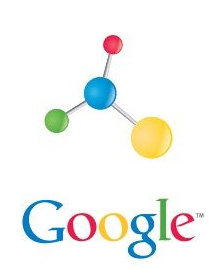 Search engines are fundamentally changing how we look for information. It’s no surprise that our information staples like the YellowPages are now going bankrupt as people turn to online to find local businesses. This is putting more and more importance on SEO services and online advertising. In this article we’re going to share with you three interesting developments in the science of search. From search patterns and customer needs to how our brains are changing the way they remember information.
Search engines are fundamentally changing how we look for information. It’s no surprise that our information staples like the YellowPages are now going bankrupt as people turn to online to find local businesses. This is putting more and more importance on SEO services and online advertising. In this article we’re going to share with you three interesting developments in the science of search. From search patterns and customer needs to how our brains are changing the way they remember information.
Long Tail vs. Short Keyword Searches
After working with online advertising for many years, you start to develop a strong understanding of what types of keyword searches result in sales. No matter what a person is searching for, there is a fundamental difference between the keywords used by a person looking to buy, versus those who are looking for information. Studies have shown, the more complex the search query, the more likely they are to be interested in buying. Let’s look at some examples:
User A searches: Clay Pottery = 75% of searches, 5% of leads
User B searches: Clay Pottery Edmonton = 20% of searches, 25% of leads
User C searches: Clay Pottery Classes Edmonton = 5% of searches, 70% of leads
When you are targeting customers via online ads, the longer more complex keyword searches are the ones that lead to sales. Millions of dollars are wasted on short keyword searches for online advertising. Long tail keywords are the key indicator of buyers – remembering this could save you thousands on your advertising campaigns.
The Internet Affects Our Minds
Our brains are using search engines and computers as it’s own personal external drive for information. This phenomenon is not exactly new – we’ve been doing it for ages, with books, with elders and with experts. To limit what we have to remember, we use something to remember it for us. This is called transactive memory. A recent study asked students to enter a series of 40 statements into a computer. This document was either saved into a generic folder, a specific one or erased. The participants who knew the information was erased did a better job of recalling the statements. Those that saved the information to particular folder, could easily recall the folder name, but not the statements themselves. This research suggests that we have trained ourselves to remember the location of information vs. the information itself.
#1 Isn’t Everything
By now we all likely know on a Google search, that you get ads and organic results. What you likely don’t know is what your potential visitor does see. The video below is a map of eye scans for a particular Google search. This study shows that the top three spots of Google are your bread and butter. Looking deeper into this study, 100% of participants looked at the top 3 results. 50% looked at the #4 ad spot on the right. Another study showed that the #1 spot received 36.4% of click through’s, while #2 and #3 received 12.5% and 9.5% respectively.
So what does this all mean?
While click-through-rates are likely what you may expect, your potential visitor is seeing the top 3 results regardless. This is where your relevancy to the search is extremely important. Since most generic searches show 3 ads at the top. The range in price for a click from spot #1 to #3 can vary as much as $2-4 – so strong ad copy comes into play. If you have well designed ads compared to your competition, sitting in the #2 or #3 ad spots could save you a ton of money, while not reducing your leads. You’re being seen regardless by every user’s search. It may be worth testing how your return is on those seen, but lesser clicked locations. #1 isn’t everything.
Recent Posts
Navigating the Digital Buying Cycle: Strategies for Modern Consumers
In today’s fast-paced world, where information is just a tap away, the buying cycle has transformed dramatically. Gone are the days when consumers...
Digital Marketing Strategies in the Off-Season
Ah, the off-season. For some businesses, it’s a time to kick back, relax, and sip on a well-deserved latte. For others, it’s a...
How ChatGPT is Transforming Online Search Behaviour
In the ever-evolving landscape of digital information, the way we search for answers is undergoing a seismic shift. We got used to searching...



